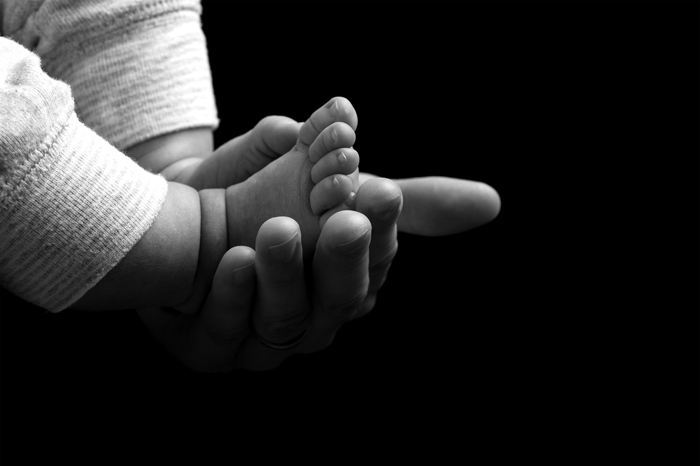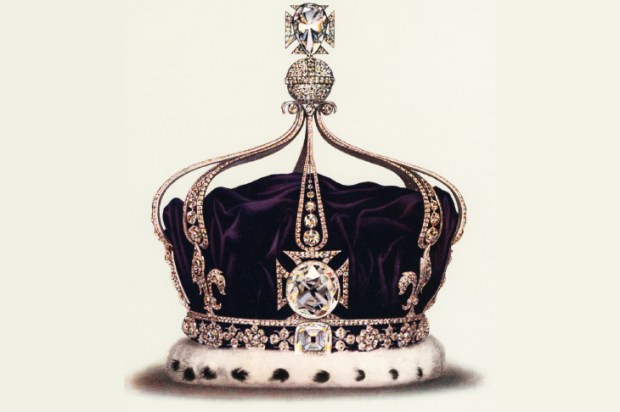In many ways this is a very old-fashioned novel. Jerome is 53, and a lacklustre professor at Columbia; his wife, Sylvie, 35, is a former topless dancer and aspiring film-maker. Sylvie has a dog but wants a baby. Together they will cross the former Soviet bloc looking for a child of their own, despite Sylvie having already had three abortions: Romania is their chosen finale, where, of course, orphans are two-a-penny.
There is much to admire in it; but the clever bits aren’t funny and the funny bits aren’t clever. The novel is littered with references to continental theorists. Blanchot, Lefebvre, Baudrillard, Deleuze, Guattari, Lacan all show up — poor old Derrida, left out! — but they are there as intellectual window-dressing. Their ideas are neither interrogated nor explored. It’s not the point. The protagonists are arch and aching, awed and awkward. Sylvie flits on the edges of dreadful parties, while Jerome capitalises on his closeness to the Parisian intellectual elite. He also then fails to write his book —The Anthropology of Unhappiness — about his persistent failure to deal with what the Holocaust might ‘mean’.
There might have been a good book in this — published first in 2006 — about the fall of the Ceausescu regime, which is an intermittent and essayistic theme. Why did Romania fall? Why did it not become the symbol of a new liberal order? What did the fact that it was televised throughout mean? Was this really the first ‘media revolution’? (I’d suggest Martin Luther as a counterpoint.) Kraus is very good on Ostalgie when it refers to something beyond the former East Germany: some people just seem to love a dictator. This, of course, is paralleled in Sylvie and Jerome’s relationship. She can’t help but love a thoroughly nasty and narcissistic piece of work.
It is a novel with many lines that might play as irony, or might be hostages to fortune. ‘Jerome was majoring in literature: that is, he had no idea what he was doing’. Kraus does know what she is doing on very fundamental points. Her use of tense and modality is exceptional. The first chapter is narrated with the verb ‘would’, the final is set in the novel’s future time frame in the present tense, with an occasional recurrence of that ambiguous ‘would’. Parts set in the present are narrated in the past; other chapters deploy the future tense, as if someone were watching, observing and dissecting the couple much later.
These are very accomplished technical achievements. Despite being littered with theorists that few readers will recognise, Torpor has a Victorian feel. Early on there is a throwaway reference — most of the references are throwaway — to Henry James. And the novel does seem queerly Jamesian: two Americans who were not born in America; a relationship which thrives on being strained; the connection between Old Europe and the New World.
The ‘torpor’ of the title is difficult to parse. In a significant moment Sylvie says, ‘Of course their efforts were misguided, but Soviets had at least tried to create a higher living standard in the country’. These adoption tourists are also frustrated revolutionaries, dreaming of a utopia they wouldn’t dirty their hands in making. Eastern Europe, as they traverse it, is a basket case of civil war and glorious overthrowing, of globalisation and fracture. The torpor refers first and foremost to the Americans on their baby pilgrimage, stranded in their post-structural inability to choose between two options: just so binary.
How much of this is ironic? How much of it is ‘post-ironic’? Is it even satire? When a novel comes with an essay at the end to tell the reader how good it is, an eyebrow might be raised. That the essay is a word-blancmange of critical theory increases the scepticism.
The essayist part of Kraus is by far the best. ‘If sex is everywhere, sex is no longer sexual’, muses Sylvie during a stopover in Prague. It’s a pointed observation, and yet the next paragraph has the sentence ‘ “We are the last generation to whom things matter,” the philosopher Gilles Deleuze said recently.’ The sense of anomie, of lethargy, of the noon day demon are palpable. The pretentiousness of the name-dropping is almost part of that sense of despair. The use of ‘recently’ is ludicrous; more art journal review than realised novel.
Sentence by sentence, scene by scene, Kraus is capable of creating fascinating work. But one can see the stitches all too clearly here, and the central dilemma — can love trump barrenness? — is frustratingly unanswered. It may be that ‘that’s not the point’. But the point is?
Got something to add? Join the discussion and comment below.
Get 10 issues for just $10
Subscribe to The Spectator Australia today for the next 10 magazine issues, plus full online access, for just $10.
You might disagree with half of it, but you’ll enjoy reading all of it. Try your first month for free, then just $2 a week for the remainder of your first year.














Comments
Don't miss out
Join the conversation with other Spectator Australia readers. Subscribe to leave a comment.
SUBSCRIBEAlready a subscriber? Log in